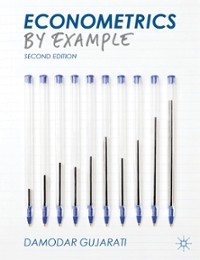Question
Module Learning Outcomes: Assess the impacts of trade flows on economic well-being, growth, and income distribution. Analyse recent developments and future challenges in the world
Module Learning Outcomes:
- Assess the impacts of trade flows on economic well-being, growth, and income distribution.
- Analyse recent developments and future challenges in the world trading system; explain their impacts on individual countries and the global economy.
- Demonstrate group working and presentation skills.
Course Learning Outcomes:
- L6.2: Compare, contrast and assess the alternative economic policies of governments on the impact on the global economic environment.
- L6.4 Demonstrate professional oral, written, communication, and interpersonal skills directly relevant to employment in economics and finance
There are two parts in this assignment:
- A course work
- A public presentation
Each student is required a coursework by choosing two countries from South-South Cooperation (select the pair of countries either from Lower-middle income, upper-middle and higher income from the World Bank classification) from the provided list on a first come-first served basis through the following link
http://www.fc-ssc.org/en/partnership_program/south_south_countries
https://datahelpdesk.worldbank.org/knowledgebase/articles/906519-world-bank-country-and-lending-groups
In their report, each student should:
- Provide general information about the countries (e.g. location, resource endowment, specialization and the main trading partners, etc.)
- Critically evaluate the current trade policies of the selected countries (e.g import substitution vs export promotion strategies ) and compare the composition and the direction of their exports and imports.
- Analyze the trade potential of selected countries by computing the Revealed Comparative Advantage (RCA) for 5 top export products for the most recent yearand explain whether these indexes appropriately reflect the trade policies adopted by the chosen countries;
- Develop a basic gravity model by conducting an empirical analysis on the factors determining bilateral trade flows. Compare your results in case the income groups of the countries are different, explain whether their economic expansions are affecting their bilateral trade volumes in the same way or differently.
Step by Step Solution
There are 3 Steps involved in it
Step: 1

Get Instant Access to Expert-Tailored Solutions
See step-by-step solutions with expert insights and AI powered tools for academic success
Step: 2

Step: 3

Ace Your Homework with AI
Get the answers you need in no time with our AI-driven, step-by-step assistance
Get Started


